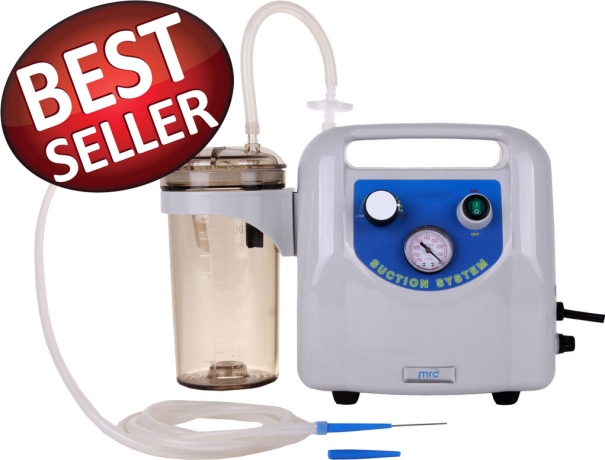Liquid Suction Pumps / Liquid Suction Vacuum Pump by MRC
Liquid suction pumps, commonly referred to as liquid suction vacuum pumps, are essential tools in many laboratory settings. These pumps are designed to create a vacuum that can pull or transport liquids from one location to another efficiently. In labs, where precision and consistency are key, these pumps help in a range of tasks that require liquid handling, making them indispensable equipment.
But what exactly makes these pumps so vital? And why are they specifically tailored for laboratory use? Let’s dive deeper into the world of liquid suction pumps and explore their importance and versatility in the lab.
How Liquid Suction Vacuum Pumps Work
At their core, liquid suction pumps work based on the principle of creating a pressure difference. The pump reduces air pressure in a chamber or tube, allowing atmospheric pressure to push the liquid into the pump, where it is then directed as needed.
Key Components of a Liquid Suction Pump
- Vacuum Chamber: The area where the pressure is lowered.
- Motor: Powers the pump and creates the suction force.
- Valve System: Ensures proper flow and pressure control.
- Discharge Port: Where the liquid exits the pump.
These components work together to provide a steady flow of liquids in various lab processes.
Applications in the Laboratory
Liquid suction vacuum pumps are used in a variety of laboratory procedures:
Filtration Processes
Vacuum filtration requires reliable suction to pull liquids through a filter, separating solids from liquids in experiments.
Chemical Distillation
In distillation, liquid suction pumps help to maintain reduced pressure, allowing the separation of compounds at lower boiling points.
Vacuum Drying
Many laboratory samples need to be dried without heat. Suction pumps speed up the process by reducing the boiling point of liquids, drying materials more quickly and gently.
Evaporation
In some lab setups, controlled evaporation of solvents is required, and these pumps provide the necessary suction for the process to proceed efficiently.
Advantages of Using Liquid Suction Pumps
So why are these pumps preferred over manual methods of liquid handling? Let’s take a closer look at their benefits:
- Efficiency: Liquid suction pumps can move liquids faster and more consistently than manual methods.
- Safety: They reduce the need for handling hazardous chemicals directly.
- Precision: These pumps provide consistent and controlled flow, critical for repeatable experiments.
Choosing the Right Pump for Your Laboratory
Selecting the right liquid suction pump for your lab depends on several factors:
- Pressure Requirements: Different pumps provide varying levels of vacuum pressure.
- Flow Rate: The volume of liquid the pump can handle within a given time.
- Material Compatibility: Ensuring the pump materials won’t degrade when in contact with the liquids you work with.
